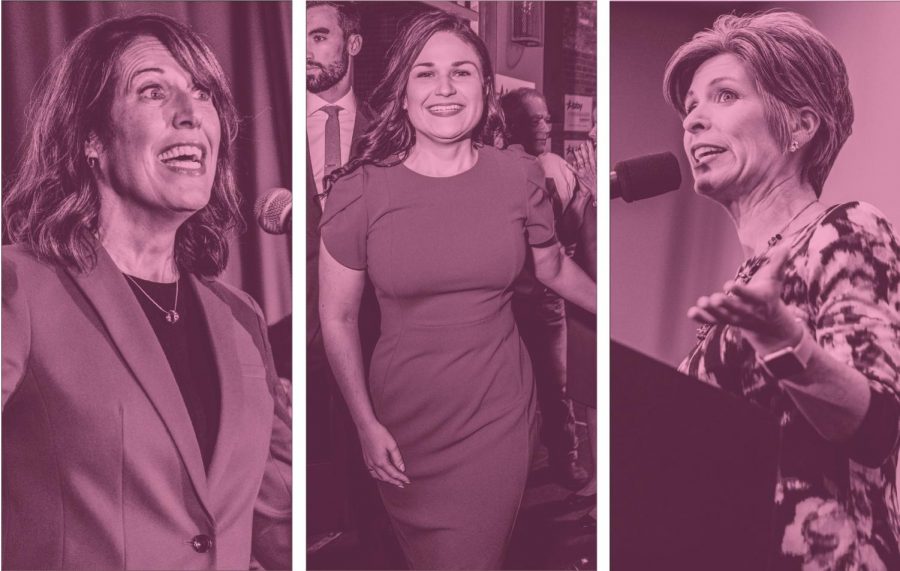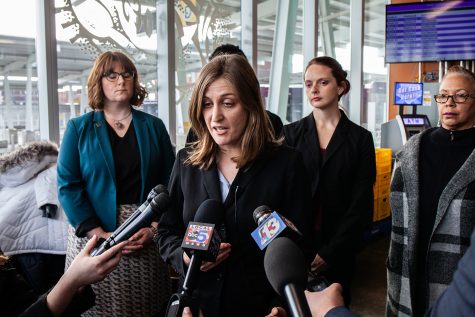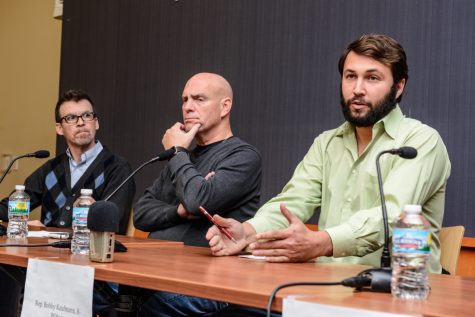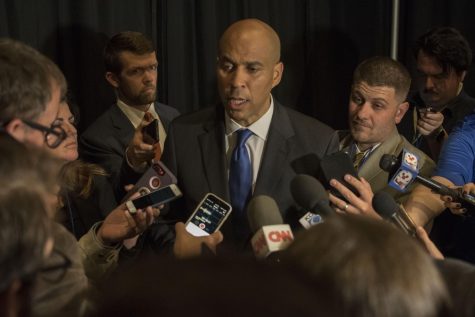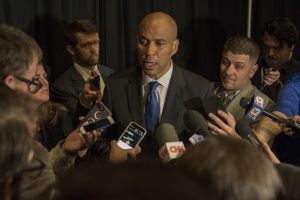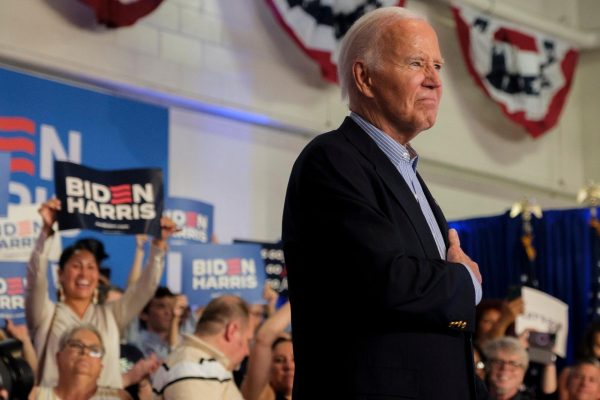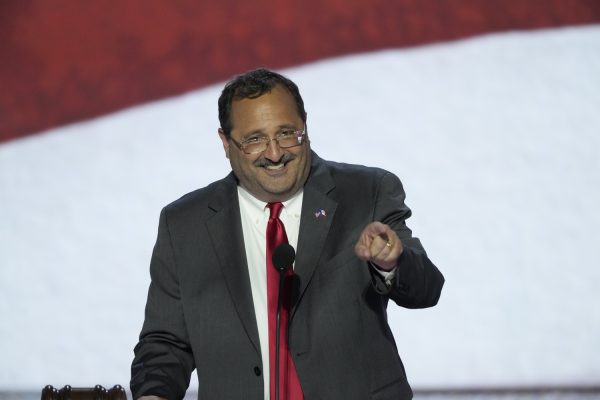Women, politics, and change
As a record-breaking number of Iowa women step into office, analysts say more collaboration and women’s issues may be on the horizon.
December 11, 2018
As more Iowa women than ever move toward legislating and governing in the coming weeks, analysts say the “pink wave” that swept the state and nation in November may mean a shift in focus toward women- and family-focused issues, as well as a more collaborative environment.
The additional women in politics may introduce more legislation on topics such as education, civil rights, and health, according to the Center for American Women in Politics at Rutgers University and the Carrie Chapman Catt Center for Women and Politics at Iowa State University — organizations that study women and promote their running for political office.
“We know that women do bring a different set of experiences, a different life experience. They see the world through their lens, as does everybody,” said Debbie Walsh, the director of the Rutgers center. “Those experiences not only shape who they are as an individual, but it then shapes what their priorities are.”
After analyzing 151,824 bills introduced in the U.S. House of Representatives between 1973 and 2014 in a study published by Political Science and Research Methods, researchers found women across political parties were significantly more likely to sponsor bills on what are traditionally viewed as “women’s issues,” such as family and law, civil rights, health, and education.
In a study published by the Rutgers center, researchers interviewed 84 of the 108 congresswomen in the 114th Congress (2015-16) and found an overwhelming majority of lawmakers described drawing on experience as mothers or grandmothers to legislate.
But the prominence of typical “women’s issues” that female lawmakers reportedly focus on does not necessarily mean all women will have the same stances. The Rutgers center’s study also found partisanship shaped how women influenced policy, especially on reproductive-rights issues.
RELATED: Who won Iowa on Tuesday? Women
This difference of opinions is on display through a number of issues, one being Planned Parenthood funding. Sen. Joni Ernst, R-Iowa, who became the first woman Iowa voters elected to Congress in 2014, supported plans to allow states to divert Title X funds from Planned Parenthood.
Iowa’s Democratic U.S. Reps.-elect Cindy Axne and Abby Finkenauer, on the other hand, have voiced their support to continue funding Planned Parenthood and a woman’s right to choose. In November, the pair were the first two women from Iowa elected to the House of Representatives.
In the spring, Finkenauer, a state representative from Dubuque, spoke on the Statehouse floor against legislation that would ban most abortions after fetal heartbeats were detected. That law, which was supposed to go into effect this summer, has been on hold as a lawsuit opposing it makes its way through the courts.
“Women are not monolithic on any policy,” said Maggie Tinsman, a co-chair of 50-50 in 2020, a nonpartisan group that works to get more women into politics. “It more depends on how they’re raised, what influenced them growing up, just like the men.”
In referencing abortion policy, Tinsman said women have differing views even in a single party. Though all Republicans made up the yes votes on the fetal-heartbeat bill, six Republican lawmakers in the Iowa House voted no on the abortion bill, including at least one woman.
RELATED: Kim Reynolds wins, becoming Iowa’s first elected female governor
“Women tend to be pragmatists,” Tinsman said. “In fact, I think some of the women realize you don’t talk about social issues. You talk economic, education and health-care issues, because those are the ones you can maybe do something about.”
Catt Center interim Director Kelley Winfrey said along with different issues being a priority, research has shown that women are more likely to be collaborative when governing.
“In a general sense, having more women both in the state Legislature and the U.S. Congress could facilitate more bipartisanship and more constructive dialogue across parties to solve problems,” she said.
“Women tend to be pragmatists. In fact, I think some of the women realize you don’t talk about social issues. You talk economic, education, and health-care issues, because those are the ones you can maybe do something about.
— Maggie Tinsman
Tinsman said during her 18 years as a Republican legislator in Iowa, she found the more women were involved, the more civil the problem-solving process became.
“If I were of one opinion and the Democrat I was working with was of another opinion … we wouldn’t say, ‘Oh, I’m not talking to that person,’ ” Tinsman said. “[Women] know how to bring people together to solve a problem, and that’s [what] politics is — it’s problem-solving.”
A record number of Iowa women will hold political office this year.
When the 88th Iowa Legislature convenes in January, 48 women will serve between both chambers, beating the current record of 35 women set in 2009. Gov. Kim Reynolds will open the 2019 session, giving her Condition of the State address as Iowa’s first elected female governor.
At the federal level, a record-breaking 126 women will serve in the 116th Congress, including Axne and Finkenauer. With three of six members of Iowa’s congressional delegation being women, Iowa’s representation in Congress has reached gender parity.
Earlier in December, Ernst was elected vice chair of the Republican Senate Committee, making her the first woman in a Senate Republican leadership position since 2010.
Despite the record-breaking numbers, many agree there is room for growth when it comes to representation of women in politics.
“We need to see more women stepping up into those roles running for office,” Ernst said during a Dec. 7 conference call with reporters. “It can be very challenging, very difficult, but it is obviously a responsibility that I take very seriously, I’m sure other women take very seriously. We would love to see them step up.”



